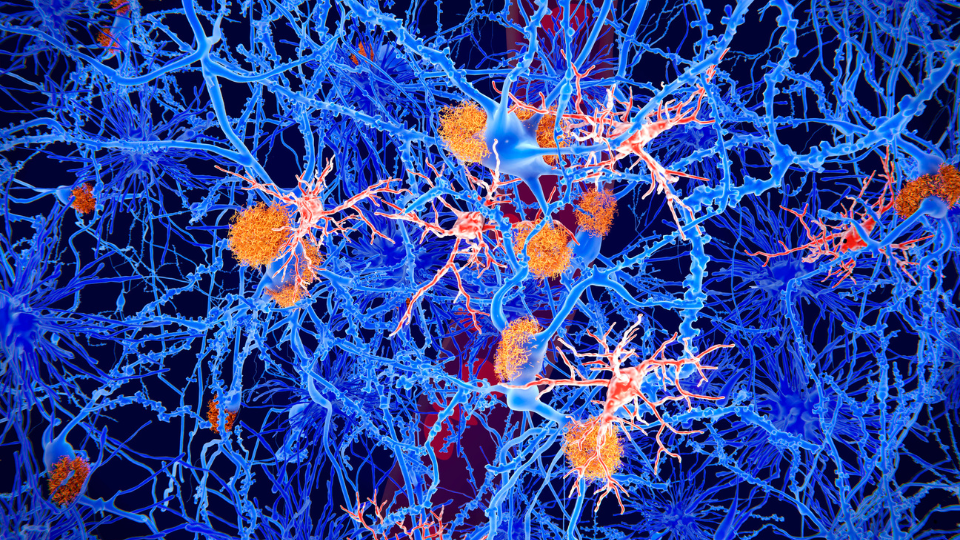- December 8, 2023
- By: Dr. Jamie Ahn
Understanding and Managing Neurological Conditions: A Functional Medicine Perspective
Struggling with relentless fatigue that drains your every day? Frustrated by memory lapses and coordination struggles that turn simple tasks into battles? Plagued by chronic pain, mood swings, and sleepless nights that steal life’s joy? If neurological symptoms are overshadowing your life, making independence a distant memory, it’s time for a fresh approach.
In the realm of functional medicine, dealing with neurological conditions is a journey of discovery and holistic healing. As a passionate naturopathic and functional medicine doctor, I’ve worked with numerous patients facing various neurological challenges. This blog delves into how a functional medicine approach can provide effective strategies for managing neurological conditions.
The Issue with Conventional Medicine for Neurological Conditions
When we talk about conventional treatments for neurological conditions, there’s a bit of a gap that needs addressing. These treatments, which often involve medication and surgery, are undoubtedly crucial, especially in serious cases. However, they sometimes miss the broader perspective.
The issue with traditional approaches is their primary focus on symptoms. Let’s take conditions like multiple sclerosis or Parkinson’s disease, for example. The conventional route tends to concentrate on alleviating symptoms, but it doesn’t always dig deeper into underlying factors. These factors could include aspects of your daily life, like diet, lifestyle choices, or even environmental exposures. It’s somewhat like smoothing over the cracks without really fixing the foundation.
Another aspect to consider is that conventional treatments can sometimes adopt a one-size-fits-all strategy. But here’s the thing with neurological conditions: they’re incredibly individual. What works wonders for one person might not be as effective for another. Everyone’s journey with these conditions is unique, and their treatment needs to reflect that personal journey.
The Functional Medicine Lens for Neurological Conditions
In functional medicine, our focus isn’t just on treating symptoms but understanding their origins. For instance, inflammation is a critical factor in many neurological disorders. According to a study in ‘Nature Medicine’, chronic inflammation can significantly impact neurological health (Source).
Each individual’s journey with a neurological condition is unique, necessitating personalized treatment plans. Diet, for example, plays a crucial role. The ketogenic diet, known for its high-fat and low-carbohydrate composition, has been recognized for its benefits in neurological conditions like epilepsy, as reported by the ‘Epilepsy Foundation’ (Source).
The Functional Medicine Approach to Neurological Conditions
Root Cause Analysis
In functional medicine, our primary goal is to understand the root cause of a condition. Neurological disorders are no exception. For instance, chronic inflammation is increasingly being recognized as a key factor in neurological diseases. A study published in the journal ‘Nature Medicine’ discusses how inflammation can contribute to conditions like Alzheimer’s disease (Source).
Other factors can also contribute to worsening symptoms, like:
- Gut Health Imbalances: The gut-brain connection is vital; imbalances here can affect neurological well-being.
- Nutritional Deficiencies: Lack of essential nutrients like omega-3 fatty acids, B-vitamins, magnesium, and others can impair neurological functions.
- Toxic Exposures: Exposure to toxins like heavy metals, pesticides, and industrial chemicals can negatively impact brain health.
- Hormonal Imbalances: Disruptions in hormonal balance can influence brain function and mood.
- Chronic Stress: Prolonged stress can lead to hormonal imbalances and affect brain health.
- Genetic Predispositions: Certain genetic factors can make individuals more susceptible to neurological conditions.
- Autoimmune Reactions: Autoimmune disorders can target neurological components, leading to various symptoms.
- Poor Sleep Quality: Inadequate or disturbed sleep can significantly affect brain health and cognitive functions.
- Lifestyle Factors: Sedentary lifestyle, poor diet, and lack of exercise can all contribute to neurological conditions.
Personalized Treatment Plans
Every patient is unique, and so are their treatment plans. For example, dietary changes can play a significant role in managing neurological conditions. A ketogenic diet, which is high in fats and low in carbohydrates, has been found to be particularly beneficial in managing epilepsy, as noted in a study in the ‘Epilepsy Foundation’ (Source).
Specific Examples of Neurological Conditions
Multiple Sclerosis (MS)
MS is an autoimmune condition where the immune system attacks the protective covering of nerves. Functional medicine seeks to address the immune dysregulation at the heart of MS. This includes optimizing gut health, as gut dysbiosis can contribute to immune dysfunction. A study in ‘Current Opinion in Neurology’ highlights the gut-brain connection in MS (Source).
Parkinson’s Disease
Parkinson’s disease is characterized by the degeneration of nerve cells in the brain that control movement. Environmental factors, like exposure to certain pesticides, have been linked to Parkinson’s. In functional medicine, we not only focus on symptomatic relief but also on reducing toxin exposure and enhancing detoxification pathways. Research in ‘Environmental Health Perspectives’ supports this link (Source).
Epilepsy
In the case of epilepsy, functional medicine looks beyond medication. Nutritional interventions, stress reduction, and sleep optimization are integral parts of managing epilepsy. As mentioned earlier, the ketogenic diet is one such intervention that has shown promising results.
Functional Medicine Approach to Migraines
Migraines are often related to dietary triggers, hormonal imbalances, or stress. A functional medicine approach might include identifying and eliminating food sensitivities, balancing hormones, and implementing relaxation techniques. A study in ‘Headache’ journal explores the role of diet in migraine management (Source).
Book a 30-MInute Eye Opening Session with Dr. Jamie Ahn Today!
In functional medicine, managing neurological conditions involves a comprehensive approach that goes beyond just addressing symptoms. It’s about understanding the intricate web of factors that contribute to these conditions, from dietary habits to environmental exposures, and creating personalized treatment plans.
At Good News Naturopathic Clinic, we are committed to helping our patients navigate their neurological conditions with a holistic, patient-centered approach. If you or a loved one are dealing with a neurological condition and are looking for a functional medicine perspective, we are here to help.
Remember, in the journey of health, understanding the underlying causes is just as important as treating the symptoms. Let’s embark on this journey together towards better health and well-being.

